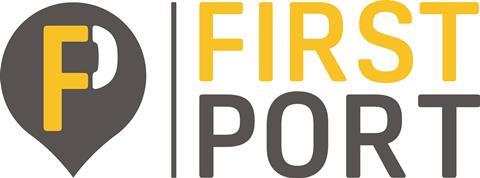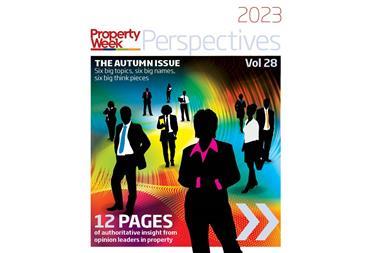Residential property management is evolving. Like many other industries, we are adapting to meet ever-increasing customer expectations and we are embracing the many opportunities new technology and digital solutions present.

In addition, we are also moving towards a future where we will be operating in an increasingly regulated environment.
For residential property managers, I see this as a huge opportunity. Digital tools are making our industry more reactive than ever before. Digital offers new, more convenient ways for customers to get in touch with us, from checking their latest budget in their online account, without having to pick up the phone, through to reporting maintenance issues at the touch of a button.
And we are on the cusp of going even further, with devices powered by the ‘Internet of Things’ feeding more information into the hands of property managers than ever before.
There’s regulatory change on the horizon too as government consults on Lord Best’s Regulation of Property Agents report into the estate agency and property management sectors. So our industry landscape will look quite different in the not-so-distant future. With recommendations including mandatory licensing and qualifications for estate agents and property managers, this would represent the first major piece of regulatory legislation for the industry since the 1970s.
While these changes may feel like challenges or threats to some, here at FirstPort we believe they are an opportunity and have one vital thing in common – they will ensure the best in the sector deliver better service to our customers than ever before.
Putting customers first
These changes are things that residents of professionally managed homes have been demanding for a number of years. However, the property industry has been slower to respond to this need than other sectors, perhaps because residential living was not challenged for its customer service in the earlier days of the internet in the same way as utilities companies and banks. I don’t think those companies would claim to be perfect now, but they started on this journey sooner and are now further down the road. That means the residential property sector has some catching up to do.
To be fair to the residential property sector, research suggests that around 85% of customers who have used FirstPort or other large companies rate our service as good, very good or excellent. But we inevitably focus on the 15% of customers for whom things go wrong, and we do need to react to those situations better.
We are seeing faster, more transparent service in the rest of our lives – whether that is face-to-face customer service in a restaurant or hotel, or digital services like booking an Uber – so customers’ expectations have risen. Set all that against the backdrop of regulatory change and it makes improved customer service an imperative for the residential property management industry right now.
Digital evolution
Technology is one of the best ways for us to respond to this customer service need, because it gives customers many more channels with which to communicate about their property. Historically, the only way to get in touch with a management company was to wait in a queue for a call centre that was only open during the day, which didn’t suit people’s busy lives. Digital allows customers to access our services 24/7, and it also gives us an opportunity to keep them informed about what can often be a very invisible service.
Customers do not always see property managers making their rounds during the day, which in the past led some to question what they were paying a service charge for. Now, we can let them know when we are visiting their development, and why, via an email or text alert, and keep them informed about how we are resolving any issues or progressing projects for them.
Customers can report problems via an app, see lists detailing how every penny of their service charge is being spent and find out things they would not necessarily have known in the past, such as how often the lifts are serviced. All of this increases transparency and trust, which are at the heart of good customer service in any industry.

What they will not see, though, are the digital tools behind the scenes that enable all this. FirstPort’s customer service system allows us to monitor live issues in all of the 3,900 developments we have under management. If a customer chooses to contact us via different routes, maybe one day via phone and another time email, we can group these communications together, allowing us to give them a more personalised service and get to work on the problem more quickly.
Our property managers in the field, as well as external contractors such as gardeners and decorators, can then make their site visits much better targeted because they are armed with the right information from the outset. Leases are also easily accessible online, so everyday issues such as who is responsible for cleaning the windows can be addressed with minimum hassle.
In future, the ‘Internet of Things’ will accelerate this responsiveness even further, so in some cases customers do not need to contact us at all. If a lift can intelligently predict that it is going to break down and send a message to our support centre, for example, then we can plan the maintenance ahead of time. We can then send a message to customers who can do their heavy shopping a day early if they know the lift will be out of order.
Regulation on the horizon
The regulations that Lord Best recommends in his report focus on making the sector more professional. This would be achieved via qualifications and strictly enforced codes of practice, similarly to how industries such as law and accountancy already operate.
Around half the professionally managed properties in the UK today are run by companies that, like FirstPort, already subscribe to voluntary codes of practice such as the Association of Residential Managing Agents and the Association of Retirement Housing Managers. And of course, we also comply with the RICS code. For us, achieving these standards is a bare minimum, and our aspiration is always to go above and beyond merely doing the minimum required to comply. However, there are still lots of companies that choose not to work towards these accreditations and that is where the problem lies.
Licensing for both companies and individual employees is another proposal mooted in Lord Best’s report. At FirstPort, we would be happy to licence the firm and senior managers, although one concern I have in going deeper with mandatory qualifications is our development managers on the ground are often service-focused, caring people who might be nervous about sitting exams. These people are some of our biggest assets and I would not want to risk losing them from the industry.
Opportunities for positive change
Another overarching message of Lord Best’s report is the need for more transparency in the industry, and I think technology can help here. Whether it is providing clear accounts and easier access to lease documents, or sending digital notifications to explain changes to our planned expenditure such as having to redeploy funds planned for a redecoration to instead pay for repairing damage caused by a storm.
The fact that this push for regulation is happening now shows the growing importance of good property management. As demographic trends move ever further towards more urban, communal living, customers’ needs are becoming much more complex than simply needing the heating fixed, and we as an industry must meet this challenge.
It is tricky to get right all the time, because we are delivering our services to people with a wide range of needs: from the engaged customer who demands the very best, to the absent buy-to-let landlord who is often more concerned with the service charge being as low as possible. Unlike a restaurant or a bank, they cannot choose to take their individual custom elsewhere so the stakes are high.
The most important thing for the residential property management industry to do now is to ensure that whatever code of practice comes in, we comply with it and are ready to go further. At FirstPort, we are already on that journey. In fact, I feel that responding to change – whether that is by utilising new digital tools or changing the culture of the business and industry through regulation – is a great opportunity.

About FirstPort
FirstPort has more than four decades of experience as a full-service residential property manager. It has been awarded a five-star rating from the British Safety Council for the third consecutive year and is the only managing agent to have achieved this. Its 3,200 employees support nearly 200,000 homes across the UK. Find out more at www.firstport.co.uk
Topics
PW Perspectives: winter 2019
- 1
- 2
- 3
 Currently reading
Currently readingHow Best is best for resi property management
- 4
- 5
- 6





































No comments yet